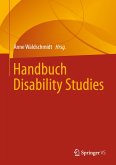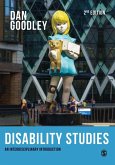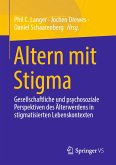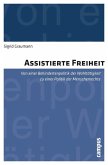How can one write the history of disability, and what are the consequences for the disabled themselves? This is the key question that Pieter Verstraete addresses in this pioneering book that tries to rethink the possible bonds between disability, history and politics. Since the 1990's the concept of disability has gained in prominence. Perhaps more than in other branches of historical enquiry, disability historians have attributed a crucial place to the notion 'identity'. Re-cently, however, the suitability of identity for the realization of libera-ting and emancipatory politics for people with disabilities has been questioned. This book aims to incorporate some of the critical approaches towards identity and to suggest a complementary connection between history and political reform.
Dieser Download kann aus rechtlichen Gründen nur mit Rechnungsadresse in A, B, BG, CY, CZ, D, DK, EW, E, FIN, F, GR, H, IRL, I, LT, L, LR, M, NL, PL, P, R, S, SLO, SK ausgeliefert werden.









